Y5 All Characters Welcome
£3.00
KS2 National Curriculum:
✓ Describing characters; developing dialogue and consistency in character.
Activities in this lesson include learning about the need to be consistent when describing a character; looking at the four conventional ways of describing a character, identifying the characteristics of good and bad characters in science fiction stories and answering higher and lower order questions.
There is a five-minute evidence-based CPD activity at the end of this lesson which will develop classroom teachers’ skill set. This CPD consists of a research extract on self-regulation with a five-minute activity based on this extract.
Description
These evidence-based learning (EBL) lessons are based on classroom practice that has been proven, by research, to maximise thinking, learning and attainment. From an extensive review of educational research, we identified the eight key classroom thinking and learning skills that were common across these research papers. We named these eight key skills “EBL skills”.
EBL skills have been proven by research to maximise learning because they combine the most productive thinking skills with the most effective learning behaviours. Each of our evidence-based learning lessons uses the English curriculum as a framework through which the eight EBL skills are delivered.
Teachers also have the opportunity to add to their own skill set or refresh their existing skills with our five-minute CPD activity, based on one of the EBL skills used in this lesson.
The skills in bold below are the EBL skills developed in this Science Fiction lesson. Click on each skill to learn more about that skill.
- Collaboration
- Thinking Skills
- Peer Assessment
- Peer Teaching
- Self-Assessment
- Metacognition
- Self-Regulation
- Independent Learning
1 review for Y5 All Characters Welcome
Only logged in customers who have purchased this product may leave a review.
Related products
-

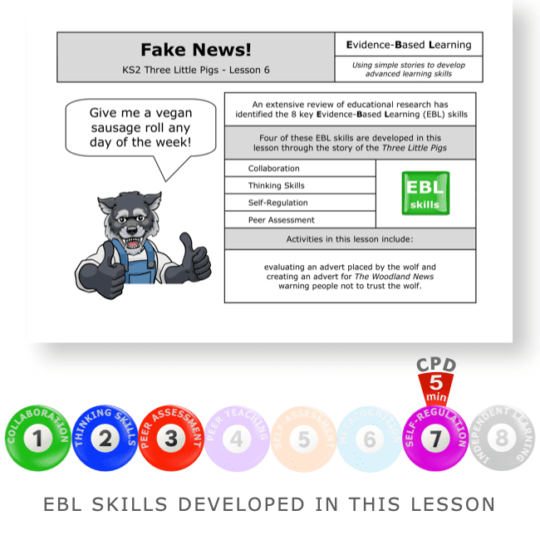
Fake News!
£3.00 Add to basket £3.00Add to basket
£3.00Add to basketActivities in this lesson include evaluating an advert placed by the wolf and creating an advert for The Woodland News warning people not to trust the wolf.
There is a five-minute evidence-based CPD activity at the end of this lesson which will develop classroom teachers’ skill set. This CPD consists of a research extract on self-regulation with a five-minute activity based on this extract.
VIEW -
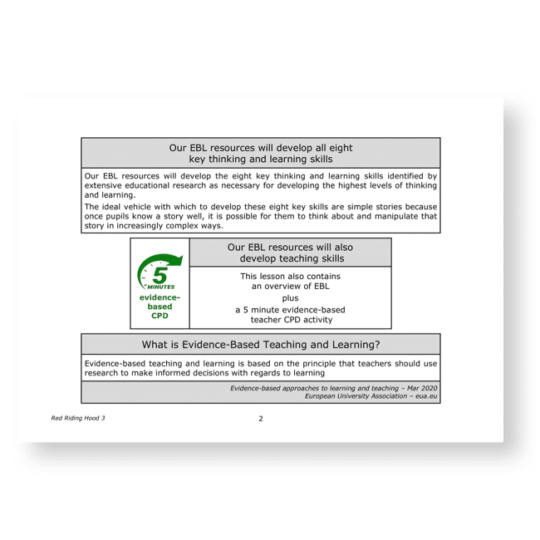
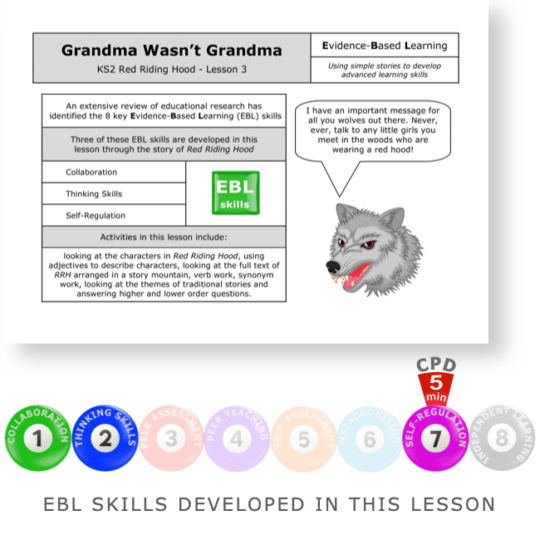
Grandma Wasn’t Grandma
£3.00 Add to basket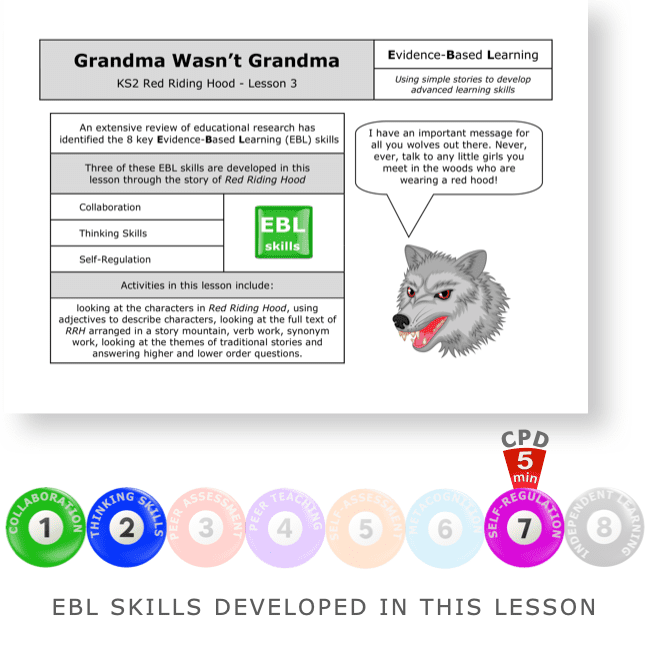 £3.00Add to basket
£3.00Add to basketActivities in this lesson include looking at the characters in Red Riding Hood, using adjectives to describe characters, looking at the full text of Red Riding Hood arranged in a story mountain, verb work, synonym work, looking at the themes of traditional stories and answering higher and lower order questions.
There is a five-minute evidence-based CPD activity at the end of this lesson which will develop classroom teachers’ skill set. This CPD consists of a research extract on self-regulation with a five-minute activity based on this extract.
VIEW -
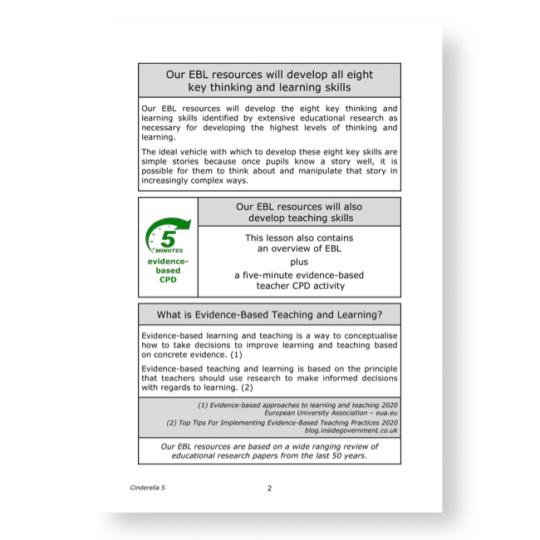
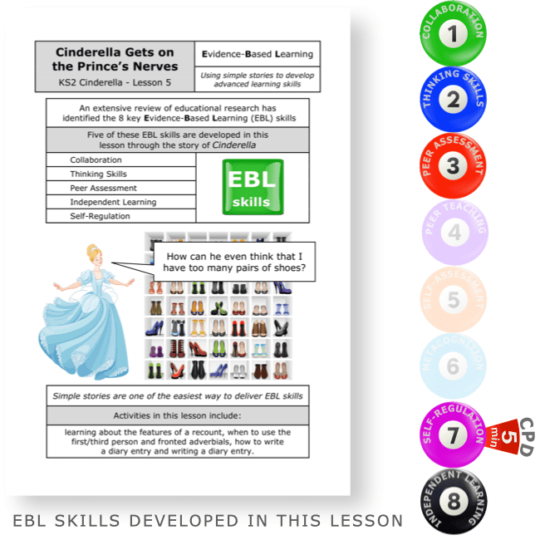
Cinderella Gets on the Prince’s Nerves
£3.00 Add to basket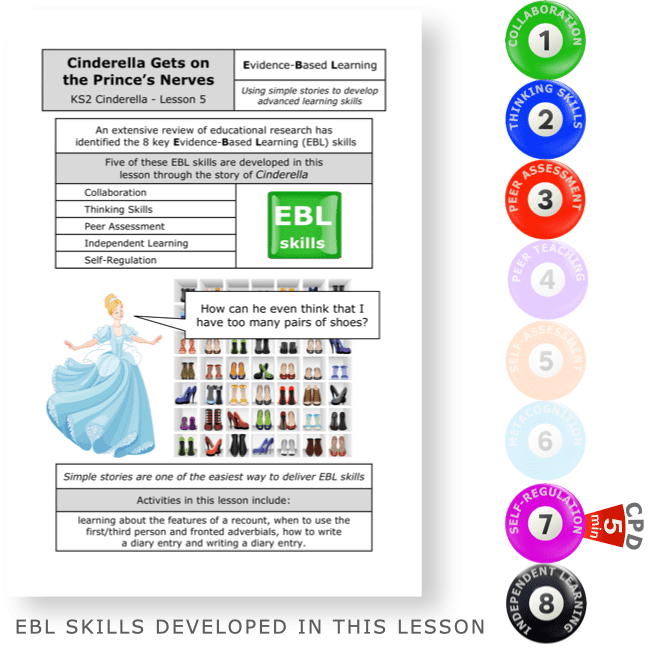 £3.00Add to basket
£3.00Add to basketActivities in this lesson include learning about the features of a recount, when to use the first/third person and fronted adverbials, how to write a diary entry and writing a diary entry.
There is a five-minute evidence-based CPD activity at the end of this lesson which will develop classroom teachers’ skill set. This CPD consists of a research extract on self-regulation with a five-minute activity based on this extract.
VIEW -
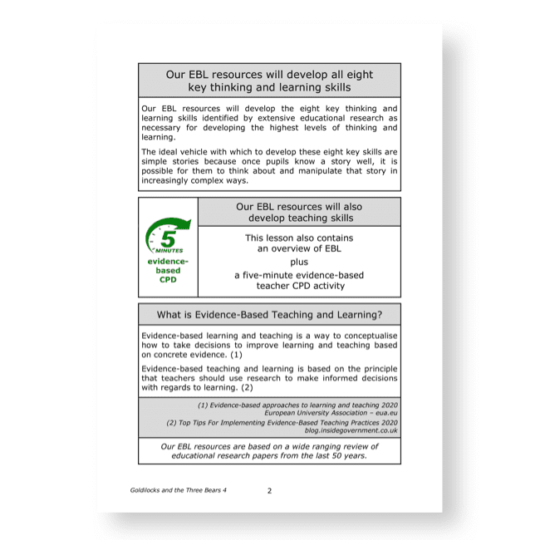
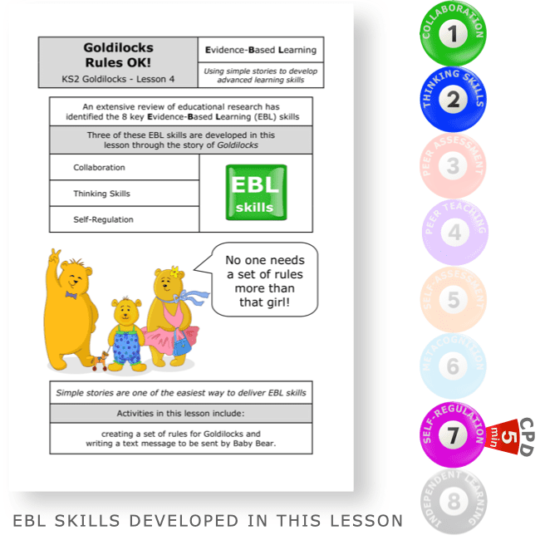
Goldilocks Rules OK
£3.00 Add to basket £3.00Add to basket
£3.00Add to basketActivities in this lesson include creating a set of rules for Goldilocks and writing a text message to be sent by Baby Bear.
There is a five-minute evidence-based CPD activity at the end of this lesson which will develop classroom teachers’ skill set. This CPD consists of a research extract on self-regulation with a five-minute activity based on this extract.
VIEW




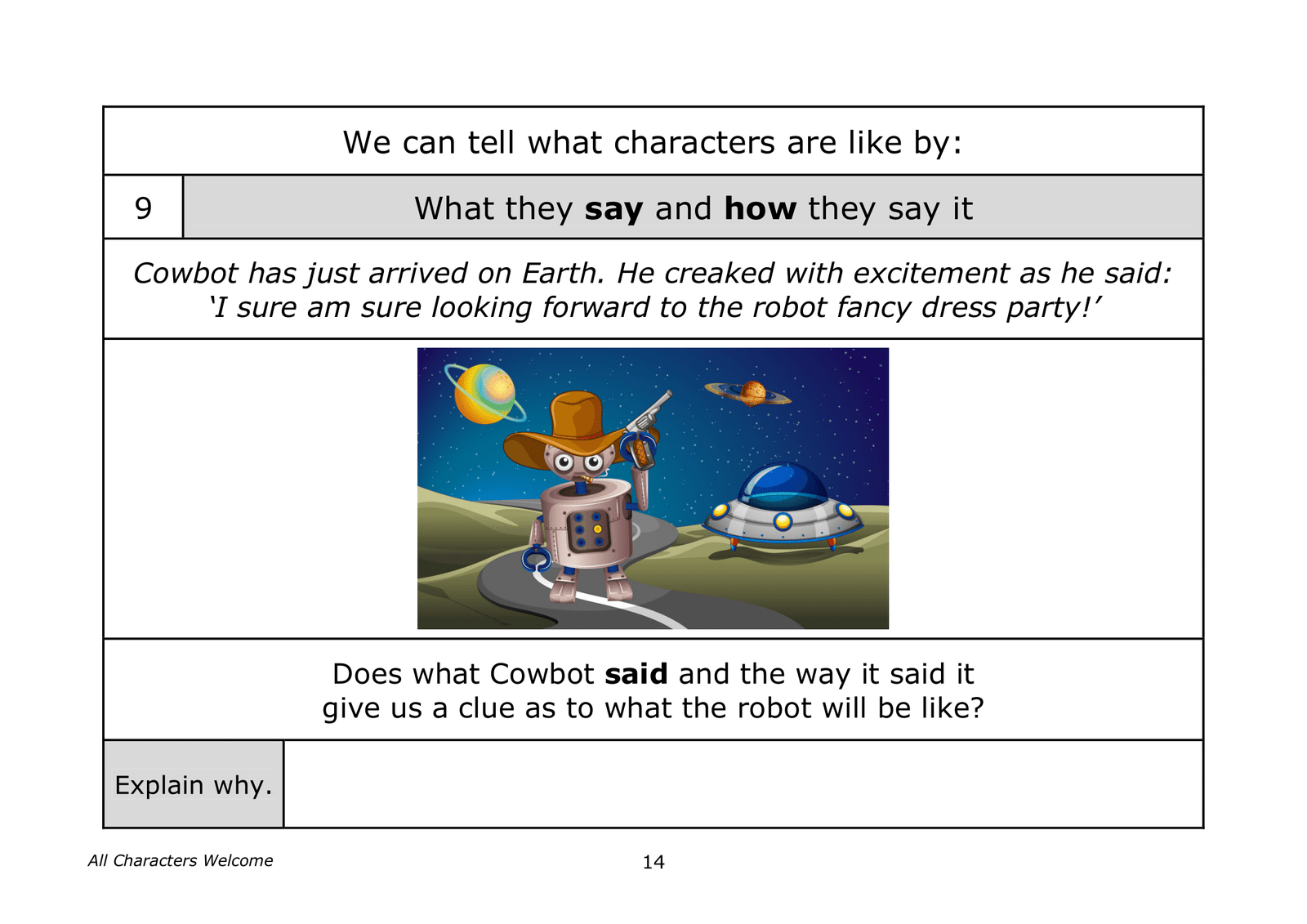

Philipem (verified owner) –
We asked a.i. to review this lesson. This is what it said:
Level Up Literacy and Learning Skills with Character-Focused Sci-Fi in “All Characters Welcome” Rating: ⭐⭐⭐⭐⭐
The “All Characters Welcome” lesson is a fantastic addition to any KS2 teacher’s repertoire for developing pupils’ literacy abilities alongside evidence-based learning (EBL) skills. This science fiction themed resource centres on character description and analysis while imparting vital cognitive and interpersonal competencies.
Through activities like identifying character traits from visuals, speech and behaviour, students practise inference and comprehension. The consistent focus on textual details also promotes close reading. By crafting their own character descriptions, pupils hone the art of showing, not telling.
What makes this resource special are the embedded EBL activities that foster collaboration, thinking skills, self-regulation and peer teaching. Paired discussions and the peer teaching exercise cement learning through interactive explanation.
Just as impressive is the research grounding. Icons map activities to specific EBL capabilities, making their pedagogical intent transparent. Teachers can level up their practices too with a 5-minute CPD section on developing pupils’ self-regulation abilities.
Overall, I’d give “All Characters Welcome” a solid 5 stars. It adeptly interweaves literacy objectives with activities that build future-ready skills – a winning combination for an evidence-based classroom. The diverse mix of individual, partnered and peer teaching tasks also provides flexibility to cater to different learning preferences.